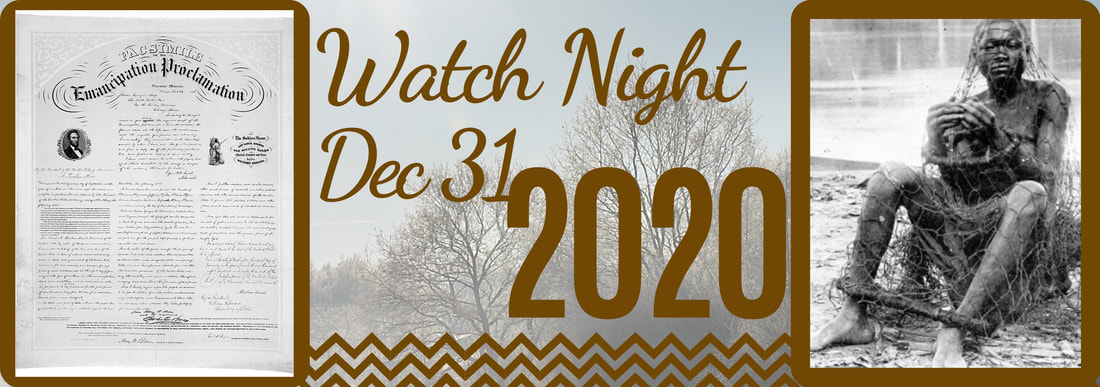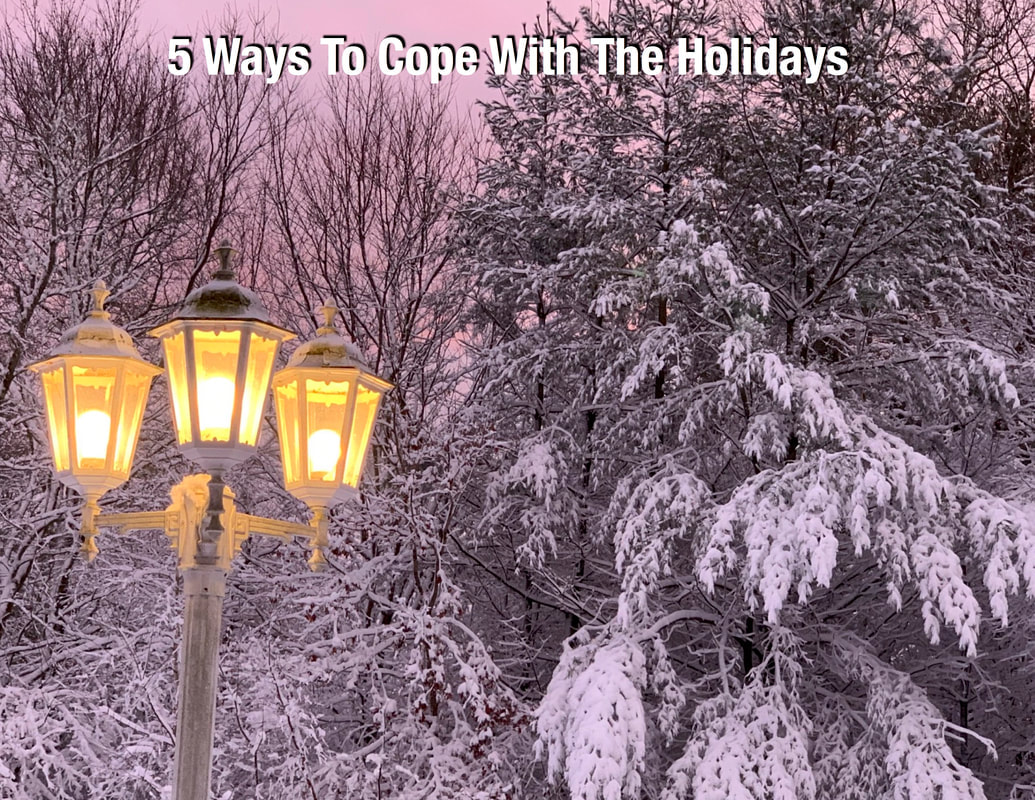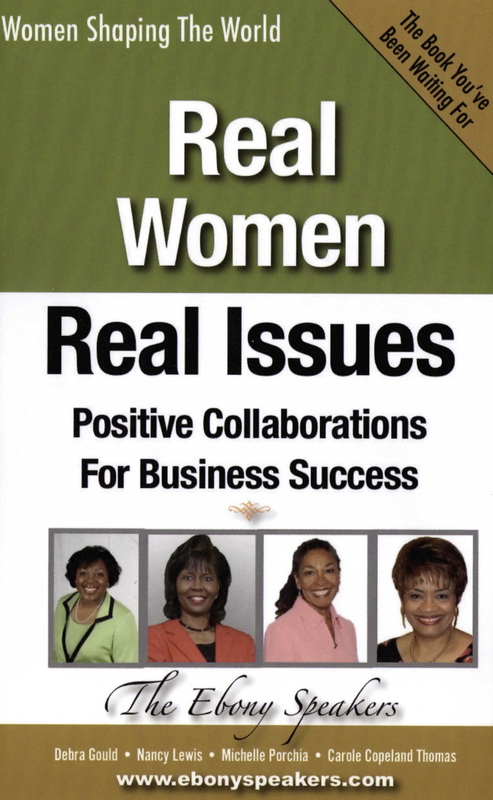|
Thursday, December 31, 2020, and Watch Night is different this year. Some 158 years since the first one awaiting the dawn of the Emancipation Proclamation, all have been in person from open-air campfires to toney churches in Boston. This year is different. This year is the year of COVID, the invisible killer that kidnapped and ravaged the entire world with its pain and suffering. But fear not! Watch Night has transferred to cyberspace via popular platforms like Facebook, YouTube, and Zoom. I am a member of Bethel AME Church in Boston, and our service will start with a tribute to the COVID lives lost this year, followed by our virtual Watch Night service all on Zoom. All are welcome. It's free of charge and open to the general public anywhere in the world and starts at 10:45 pm EST. Here's the link to Join: http://bit.ly/3o9pk6A From my home to yours, I wish you rich blessings into the New Year. Here is a special article I created about the history of Watch Night Service in the African American Community. The tradition predated the importance of the famous 1862 Watch Night Services and originated with the Moravians in Germany many years earlier. The first Methodist church in America to celebrate Watch Night in the 1700s was St. George United Methodist Church in Philadelphia, the home church of Bishop Richard Allen, co-founder of the African Methodist Episcopal Church. However, it has become particularly important in the Black Church, with its evolution in the early to mid-1800s. The word evolved from "Freedom's Eve" to "Watch Night" as the freed and enslaved blacks "watched" the clock strike 12 midnight, turning the course of the Civil War and freeing three million slaves in the states of the rebellion. Wishing You The Best in 2021! Stay Safe and Continue to Stay Socially Distanced! Carole Copeland Thomas, MBA CDMP, CITM --------------------------- The History Of Watch Night Services In The Black Church by Carole Copeland Thomas With the festivities of Christmas, Hanukkah, and Kwanzaa now on full display, there is still time to reflect on the ritual of my ancestors and many other African Americans, whose forefathers sat around campfires and wood stoves in the twilight of December 31, 1862. There they sang spirituals acapella, prayed, and thanked the Good Lord for what was about to happen the next day. In the North, Abolitionists were jubilant that the "peculiar institution" was finally about to get dismantled one plantation at a time. The booklet, Walking Tours of Civil War Boston sites this about this historic event: "On January 1, 1863, large anti-slavery crowds gathered at Boston's Music Hall and Tremont Temple to await word that President Abraham Lincoln had issued the much-anticipated Emancipation Proclamation (EP). Those present at the Music Hall included Uncle Tom's Cabin author Harriet Beecher Stowe, poets Henry Wadsworth Longfellow and John Greenleaf Whittier and essayist, poet and physician Oliver Wendell Holmes, Sr. Also present was Ralph Waldo Emerson, who composed his Boston Hymn to mark the occasion." Now… Let's Look Back...158 Years Ago Tonight... It was on January 1, 1863, amidst the cannon fire, gunshots, and burnings at the height of the Civil War that President Abraham Lincoln sealed his own fate and signed the Emancipation Proclamation. It begins with the following decree: Whereas on the 22nd day of September, A.D. 1862, a proclamation was issued by the President of the United States, containing, among other things, the following, towit: "That on the first day of January, in the year of our Lord one thousand eight hundred and sixty-three, all persons held as slaves within any State or designated part of a State, the people whereof shall then be in rebellion against the United States, shall be then, thenceforward, and forever free; and the Executive Government of the United States, including the military and naval authority thereof, will recognize and maintain the freedom of such persons, and will do no act or acts to repress such persons, or any of them, in any efforts they may make for their actual freedom." That the Executive will, on the first day of January aforesaid, by proclamation, designate the States and parts of States, if any, in which the people thereof, respectively, shall then be in rebellion against the United States; and the fact that any State, or the people thereof, shall on that day be, in good faith, represented in the Congress of the United States by members chosen thereto at elections wherein a majority of the qualified voters of such State shall have participated, shall, in the absence of strong countervailing testimony, be deemed conclusive evidence that such State, and the people thereof, are not then in rebellion against the United States." CAROLE' S TRANSLATION: Effective January 1, 1863, all slaves in the states in rebellion against the Union are free. Technically that is all that President Lincoln could do at the time. He used his wartime powers as Commander in Chief to liberate the "property" of the states in rebellion of the Union. The act did not free the slaves of the Union or border states (Delaware, Maryland, Kentucky, Missouri, or West Virginia) or any southern state under Union control (like parts of Virginia). It would take the 13th Amendment (that freed all slaves in 1865), the Union Army winning the Civil War (April 9, 1865), and the assassination of President Lincoln (shot on April 14th and died on April 15, 1865) for all of the slaves to be freed. That included the liberation of the slaves in rebellious Texas on June 19, 1865 (Juneteenth Day) and finally the ratification of the 13th Amendment on December 18, 1865, giving all black people freedom and permanently abolishing slavery in the US. So in 1862 on the eve of this great era, the slaves "watched," prayed, and waited. My ancestors, including Bishop Wesley John Gaines of the African Methodist Episcopal Church (AME) (a slave in Georgia freed by the EP) and the other three million slaves, prayed for divine guidance and an empowered Abraham Lincoln to do the right thing. It is as important today as the tradition of black people eating black-eyed peas on New Year's Day for good luck. Following the Emancipation Proclamation, slaves were freed in stages, based on where they lived, the willingness of the plantation owner to release them and when Union troops began to control their area. Black educator and community activist Booker T. Washington as a boy of 9 in Virginia, remembered the day in early 1865: "As the great day drew nearer, there was more singing in the slave quarters than usual. It was bolder, had more ring, and lasted later into the night. Most of the verses of the plantation songs had some reference to freedom. ... Some man who seemed to be a stranger (a United States officer, I presume) made a little speech and then read a rather long paper—the Emancipation Proclamation, I think. After the reading, we were told that we were all free and could go when and where we pleased. My mother, who was standing by my side, leaned over and kissed her children, while tears of joy ran down her cheeks. She explained to us what it all meant, that this was the day for which she had been so long praying, but fearing that she would never live to see." The longest holdouts were the slaves in Texas, who were not freed until June 19, 1865, two months after the Civil War ended. That day is now celebrated as Juneteenth Day around the United States. And Massachusetts became one of the few states to officially recognize Juneteenth as a State Holiday in 2020, following the death of George Floyd. That is the history of Watch Night in the African American culture. May you and your family reflect on the journey we have all experienced in 2020. Thank you for ALL of your support you have given to me and my business throughout 2020. Goodbye to the COVID drenched year of 2020. We WELCOME 2021 !!!! -Carole
0 Comments
by Carole Copeland Thomas COVID has ushered in a different type of holiday season. And even in years past, for some, the holidays are a triumphant time to celebrate the Christian, Jewish, Islamic, Hindu, and other religious and non-religious traditions of the season. Past years included gift-giving, office parties, and tons of food earmarked with company bonuses, holiday concerts, and family get-togethers wrapped up in bright shiny packages. Most of all, children are showcased because their excitement and anticipation of Christmas are filled with toys, presents, and at least a one week break from school.
Those are the happy reflections of the holidays that perhaps represent your current state of mind despite an invisible virus that has altered our lives worldwide. For others, a different picture unfolds as another season, yields a new level of sadness, misery, and loss. I know both kinds of holidays, including the happiness of my childhood years combined with the first Christmas after losing my teenage son. The happy and the sad times are both graphic reminders of what many people are facing this December in the midst of COVID. For those who are struggling to get through the season, here are FIVE ways to cope with the holidays in a proactive and intentional manner. These are proven methods that have helped me in past years and should help those who need an anchor to navigate the season. 1. Think Of December As A Temporary Moment In Time I am reminded of my dear friend, Joni Spicer, who faced terminal cancer in 2018 and how she navigated through that year. She made up her mind, called all of her friends, and hosted her Annual Christmas Eve Open House. I dropped by early on and was amazed by her courage and confidence to celebrate the temporary. She was thin as a rail but looked elegant and beautiful. Her house was decorated like a Norman Rockwell Christmas card. I understand that countless friends attended her gathering and celebrated "the here and now" with Joni and her family. We buried Joni in January 2019, but what a climactic ending she orchestrated with every ounce of energy she had in her body. It was a temporary moment in time and a way for this courageous woman not to let death define her holiday spirit. Her act of courage will stay with me forever. Perhaps you can find some ritualistic way to celebrate what you have in a meaningful and spirit-filled manner. Do it on Zoom since holiday gatherings are discouraged with COVID numbers spiking up. Yes, it's temporary, but it will hopefully move you through a more inviting 2021. 2. Your Loss Is Real, And Your Pain Is Normal Perhaps there are only a few close friends to whom you can express this emotion. Most people are simply too wrapped up in their own drama to take on yours. Some people don't care, others want you to "get over it," and a tiny fraction are gleeful about your misery. Be careful whose confidence you keep. When you're in pain, emotionally or physically, express yourself to those who really care. Don't ignore your feelings, and don't navigate this month in denial. You're human, and your sheer resilience should help you gain the strength and hopefulness to move forward in your life. 3. Reflect On The Positive Our human nature and our protective emotional devices propel us from zero to 500 when events take place. You receive a note from your doctor that a second test is needed for precautions only. Your mind immediately focuses on a terminal illness. It's difficult to schedule a meeting with your boss about that raise you're going to request. Your mind tells you that something is wrong and your job is in jeopardy. Or a normal business slowdown occurs in December, and you panic with thoughts of your company shutting down. You see the COVID statistics and death rate in your country and around the world and overthink the possibility of catching the virus, even though you routinely wear a mask and wash/sanitize your hands. These are all very real emotions that YOU must manage. Going to the "dark side" is a natural reaction. YOU must manage that reaction by pumping your thoughts with positive ideas, affirmations, and expectations. Do it first thing in the morning, EVERY morning, to remind YOU that a positive perspective is more productive than negative stimulators. Thank your doctor for her/his proactive choice that will KEEP you healthy in the days ahead. Understand that your boss has deadlines to meet and has NOT forgotten to schedule a meeting with you. Remind yourself next summer to add on extra marketing activities so that WHEN the December slowdown happens, you'll be prepared. And continue your vigilant health and social distancing routine so that you will protect yourself from catching COVID. It's a mind shift, designed to redirect your thoughts in a more positive-proactive manner. 4. Add Lighting To Your Home or Office Depending on where you live in the world, shorter days in December might affect your emotions. That's a real clinical condition for some, whose emotional state is directly impacted by increased darkness in late afternoons. And there's an entire historical pagan tradition around December 21st, Winter Solstice, the shortest day of the year. To counter the darkness, add additional lighting to your home or office. If you celebrate Christmas, the lights on Christmas trees and other holiday decorations can improve your mood. So think of adding additional lamps and other lighting devices from December through March as mood-picker uppers. Fireplaces are also beneficial. Light and sunshine work wonders on improving your emotional state of being and general outlook on life. 5. BREATHE Yes, deep breathing provides a healthy and proactive way to clear your thoughts and center your spirit for another day of adventure. As part of my morning routine after prayers and journaling, I recite a positive affirmation that reminds me to breathe and stay calm during the day. It's a good way to center yourself while being reminded that your mind and body will be better positioned for whatever life throws at you when you practice deep breathing and staying calm. That's my morning message to ME as I face all the ups and downs in my business and personal life. From yoga to health regimens to working out, deep breathing gives you energy and provides the pathway to stay focused on your goals and objectives. There are countless breathing exercises you can build into your daily regimen to add value to your healthy lifestyle activities. These FIVE steps will help you pick yourself up when you feel the positive energy draining from your system. Try them and pass them on to others. Learn how to take life one day at a time. Explore ways to manage your emotional and physical conditions so that you see more promising possibilities in the weeks, months, and years ahead. Determine what you can and cannot CONTROL or CHANGE. Adjust your attitude when circumstances are out of your control. Fortifying the positive aspects of your attitude will help prepare you for more meaningful and beneficial opportunities in your future. You can cope! You can overcome your challenges! You can make it through the dynamic days of December. -Carole No-one could have pinpointed the enormity of a worldwide COVID pandemic crash landing earlier this year. Sure, the experts and scientists knew that some type of pandemic germ attack was bound to happen. Even Bill Gates talked about our unpreparedness for a germ outbreak in his 2015 Ted Talk (https://www.youtube.com/watch?v=6Af6b_wyiwI). Yet the invisible virus snuck into our homes, workspaces, and modes of transportation, infected more than 70 million people, and killed nearly two million lost souls worldwide as of this posting. The devastation has been unimaginable, painful, and life-changing. And with so many people now working from home (WFH) using video conferencing platforms like Zoom, our communities have had to ramp up to meet the needs of our current reality.
If you think that life will snap back to "normal" early next year when a few million people are vaccinated, think again. Yes, 2021 will undoubtedly become a year of recalibration; but the recovery timeline may expand many months into our future. Based on what the experts, scientists, researchers, and business leaders say, the United States and much of the world won't ride out this pandemic until the second half of 2021, perhaps well into 2022. Before you scream in agony, think again. Instead of passing out from exhaustion, now is your time to PIVOT. Channel your energy and concentrate on surviving, strategizing, and steering your efforts toward a NEW beginning in 2021. PIVOT POINTS to PONDER:
PIVOT FORWARD The action word is PIVOT. Finding the path that allows you to turn, rotate or spin forward should be an important priority for you as 2020 shifts into 2021. Whatever your fears, disappointments, or obstacles were for this year or last year, put them behind you and PIVOT toward 2021. Here are 10 WAYS that you can PIVOT forward in 2021.
And A Bonus 11. Stop making the Imposter Syndrome your best friend! Start believing in yourself and make a list of your strengths and talents. PIVOT FORWARD, use these 10+ steps, and get ready for a brand new you who's ready to take on the world in bite-size chunks! Don't look back! You have what it takes to move forward! -Carole |
Details
Categories
All
The Multicultural Symposium Series Webinar Series features current topics designed to enhance personal development both on and off the job. All you need is a computer and a phone to join each webinar. Open to Members of the Multicultural Symposium Series.
Visit www.mssconnect.com for complete information.' Want to learn what it's like to own your own business? Or how to expand your business? Pick up a copy of Carole's book today!
Click On The Cover Below... How can YOU practice diversity and multiculturalism where YOU live?? Read Carole's book and find out how to make it happen!!
Click On The Book Cover Below... AuthorCarole Copeland Thomas is a 27 year speaker, trainer and consultant specializing in global diversity, empowerment, multiculturalism and leadership issues. Archives
August 2023
|
- HOME
- Hire Carole To Grow Your Organization
- VIP Day
-
Topics and Programs
- World Trade Day Presentation
- High Stakes Sexual Harassment
- Diversity & Dollars
- Diversity Best Practices
- Meeting Planners >
- Global Diversity/Multiculturalism >
- Empowerment
- Leadership
- 2019 Diversity Awareness Month
- Multicultural Sympoisum Series
- Multigenerations In The Workplace
- Roosevelt Thomas Tribute
-
Photo Gallery
- Liberty Utilities 2019
- INFLUENCE 19 NSA
- Black NSA Influence 19
-
Faith Based Initiatives
>
- NEAC 2023
- Allen AME Providence Lay Luncheon
- 2019 Photos New England Annual Conference
- 2019 Videos New England Annual Conference
- 2018 Bethel WMS Christmas Service Project
- 2016 New England Annual Conference
- 2014 Bethel AME Boston Ministry Fair
- 2014 New England Annual Conference
- WMS-NGO
- 2012 AME General Conference
- American Girl Dolls On Parade
- NSA New England 2017-2018
- GBCVB Multicultural Meet & Greet
- May Institute-Blue Cross Blue Shield Photo Gallery
- St Paul AME 100th Anniversary
- Joni's 80th Birthday Weekend
- Boston March Against Hate Photos
- Boston March Against Hate Videos
- NSA Influence 17
- Black NSA Influence 17
- NEHRA D&I Gala
- Bethel 2016 Photo Album
- May Institute Race Forum
- Park School PE
- NSA Central Florida
- Dorchester Bay EDC
- 2016 AME General Conference >
- N'Namdi Art Center-Detroit
- Family Gatherings >
- About Carole & Carole's Blog
- Books
- Video, Radio, More...
- Contact Us
- World Travels
- Store/Articles/Events
- Carole's Coaching Academy
- Product
- Retreats
- JUNETEENTH SPECIAL OFFER
- Understanding Black Culture
- Guidebook Special Offer
- Zoom Tutorials 2021
- Indigenous Italian Resources





 RSS Feed
RSS Feed


